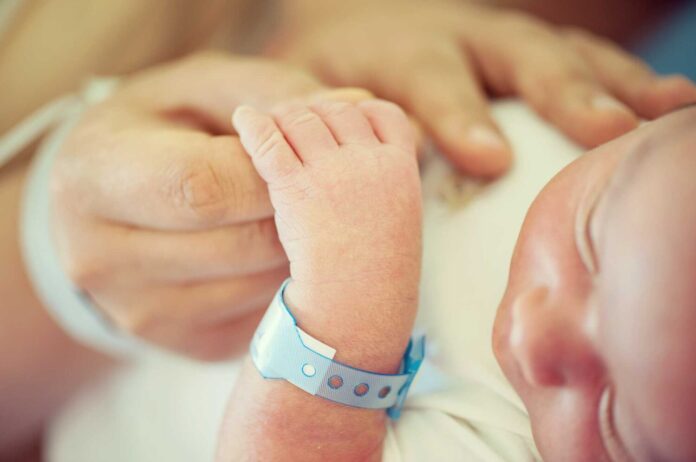No parent would ever expect a birth injury when expecting a baby. However, there are chances that birth injury can occur. When a family encounters birth injuries, they face a lifetime of questions and concerns regarding their child’s medical care and well-being.
If you are expecting a child, it will be helpful for you to be aware of the risk factors for birth injuries. Being familiar with the risks can help you identify the problem earlier. You should work with an attorney today if you suspect the cause of your child’s injury is medical negligence.
Top risk factors increasing the chances of a birth injury:
1. Baby’s shape and size

As the size of the baby increases, difficulties in labor increase. A baby will be called macrosomic when the birth weight exceeds nine pounds. In such cases, performing the childbirth process through vaginal delivery will not be ideal.
Babies that are heavier than the standard weight often have a high chance of birth injuries. This is because the birthing or delivering procedure for Heavier babies is much more complex than for normal weighted babies. Hence they have a high risk of birth injuries.
The doctors must track the baby’s growth throughout the pregnancy and advise for a C-section if the baby’s weight is determined to be more than nine pounds. The chances of a birth injury will also rise in cases where the mother’s pelvis shape is complicated and the baby needs to be delivered.
2. Medical condition
A mother is likely to develop different medical or health conditions during pregnancy. Such medical conditions can lead the mother to birth injuries with the baby. However, treating several medical conditions and mitigating the potential danger of a birth injury is possible.
In cases where a medical condition is not possible to treat, a doctor must monitor the mother carefully and make suggestions based on their health. A doctor’s supervision can significantly limit potential risks and injuries.
3. Maternal condition

During pregnancy, the mother might suffer from certain conditions that increase the risk of an injury to her baby without prenatal and medical care. Such a condition is known as preeclampsia. The mother might feel high blood pressure with preeclampsia.
These maternal conditions can result in birth injuries such as brain damage or oxygen deprivation. Maternal infections can also contribute to a higher risk of birth injuries. If such maternal conditions are left untreated, the disease can lead to limited fetal oxygen supply and cerebral palsy in worse conditions.
4. Delivery position
The delivery position plays a crucial role in determining the occurrence of birth injuries. The position in which the baby rests before delivery can impact the labor difficulty and contribute to the birth injury risks. If a baby is in a difficult position and the expected vaginal delivery will likely be difficult, the doctors must inform the mother and advise options such as C-sections.
Nevertheless, infants born in a different position, like head up or the baby’s buttocks, come on the big opening insurers of the head or breech position have a higher chance of sustaining birth injuries during delivery than standard delivery. In such a situationon, if the mother cannot push the baby out, the doctor might have to opt for a surgical procedure.
5. Sustaining Birth Injuries due to medical mismanagement

Pregnant mothers are generally quite emotional about their baby’s health and focus on a normal pregnancy throughout. However, sometimes due to the lack of care from a doctor, they might sustain specific other injuries which could have been avoided. Informing the mother about these injured is not simple, as it might make dealing with the birth injuries more challenging given their emotional state. While the parents are trying to accept the sudden shock, they might start thinking about the future and several expenses they will have to bear for their child.
The thought of constant medical attention might overwhelm the parent since most people are never prepared for such situations. In addition, the idea of not being able to lead an everyday life can be traumatizing for the parents. If the doctor cannot determine the birth injuries during the pregnancy because of their negligence or has predicted the risk of injuries but fails to inform the parents, the doctor will be held responsible for the consequences.
In such cases, the parent must contact an attorney as soon as possible and discuss their case details with the lawyer. It is always advised to sleep with an experienced lawyer as they have years of practice in birth injury cases and know how to tackle the situation well.
Even though you cannot compensate for the tragedy with any amount of money, as a parents, you can ensure you and your child get the best possible amenities. You will get compensation for all the medical bills and expenses, including future ones.
Moreover, any loss of income, disability to work or perform daily activities, emotional trauma, and physical suffering are also compensated in cases where the doctor shows negligence.
6. Oxygen deprivation
While most people are unaware of this, oxygen depreciation is a severe issue during the birthing period. If the baby experiences a lack of oxygen, even for a short period, it can cause significant birth injuries or complications to the baby’s health. Oxygen deprivation might be due to undeveloped lungs or prolapsed umbilical cord. Such situations are generally seen in babies that are born prematurely.
In addition, oxygen deprivation can also significantly affect the brown development of the baby. The most common reason for brain-related issues in babies is so much oxygen at the time of birth. Nevertheless, these brain injuries often result in lifelong medical conditions, and the baby and its parents can suffer from several life-altering changes.
Get help
If you suspect your child might be dealing with a birth injury, rush to a doctor immediately. Once the check-up is done and something goes wrong due to the doctor’s negligence during your pregnancy or delivery, you must get legal help from an attorney immediately.






